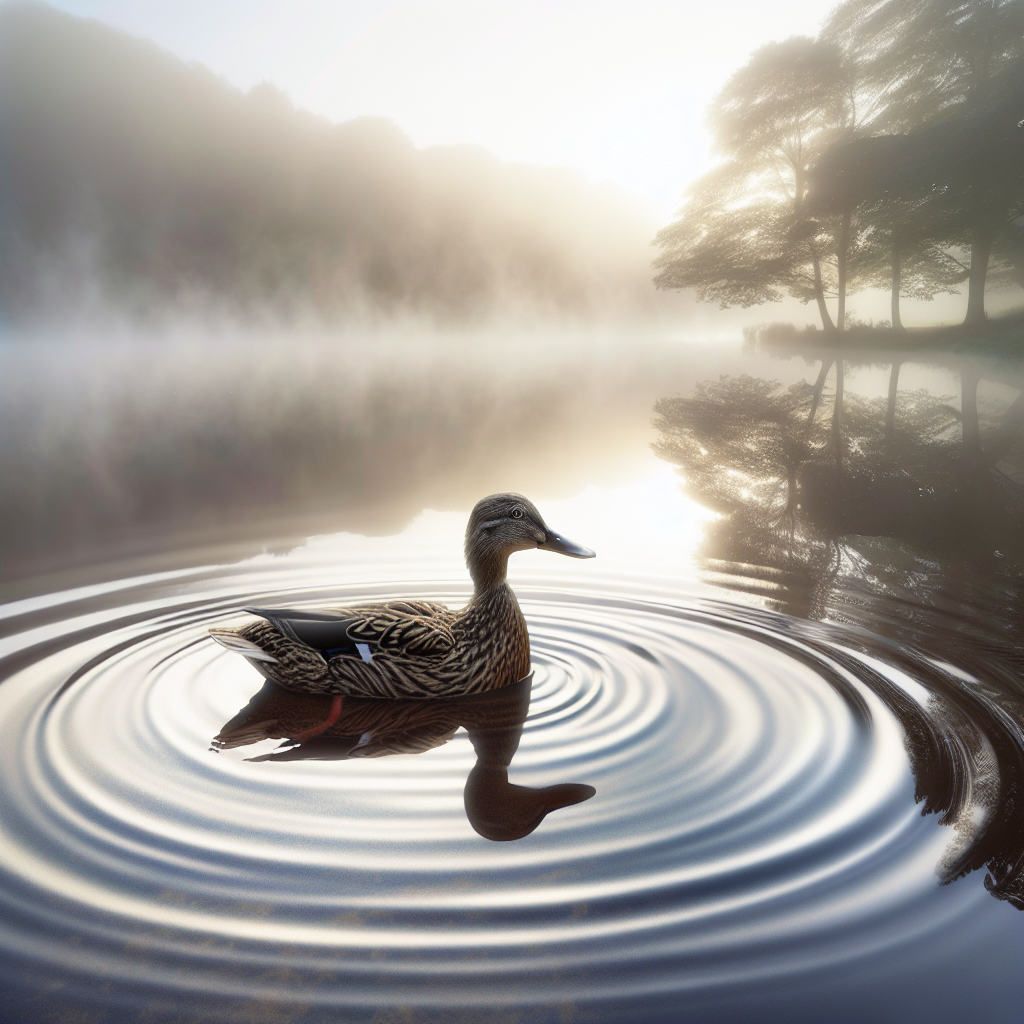
Alex Ponder PhD et al.
Ducks are often observed at ponds producing their enigmatic “quack,” a sound that carries both immediacy and mystery. This study proposes that their idling, paired with the recurring invocation of “quack,” constitutes an intricate act of performance art. “Quack” may signify many things: a call, an answer, a need, or perhaps nothing at all. The meaning of what “Quack” truly is—or whether it exists as anything more than a sound—is left entirely ambiguous, inviting the observer to project their own interpretation. By turning waiting, performative sound, and circular behaviors into rituals of existential contemplation, ducks manifest a profound meditation on the nature of meaning, connection, and the ambiguity of expectation. This essay situates the ducks’ performance within a broad philosophical framework, drawing parallels to the thinking of Kierkegaard, Heidegger, Camus, Nietzsche, and Derrida as a way of exploring the elusive nature of “Quack.”
Published
Read More
Jane Waddleworth et al.
Ducks, those elusive creatures believed to exist at the intersection of water, air, and land, have long befuddled human comprehension. This paper argues that ducks do not, in fact, exist as biological entities but are instead fictitious phenomena—manifestations of a collective human hallucination. These creatures, said to embody the seemingly paradoxical ability to swim, fly, and waddle, are nothing more than projections of the human subconscious yearning for multidimensional freedom. Drawing on philosophical, psychological, and zoological inconsistencies, we posit that the duck is but a mirage—an idea born not of reality, but of humanity’s existential crisis.
Published
Read More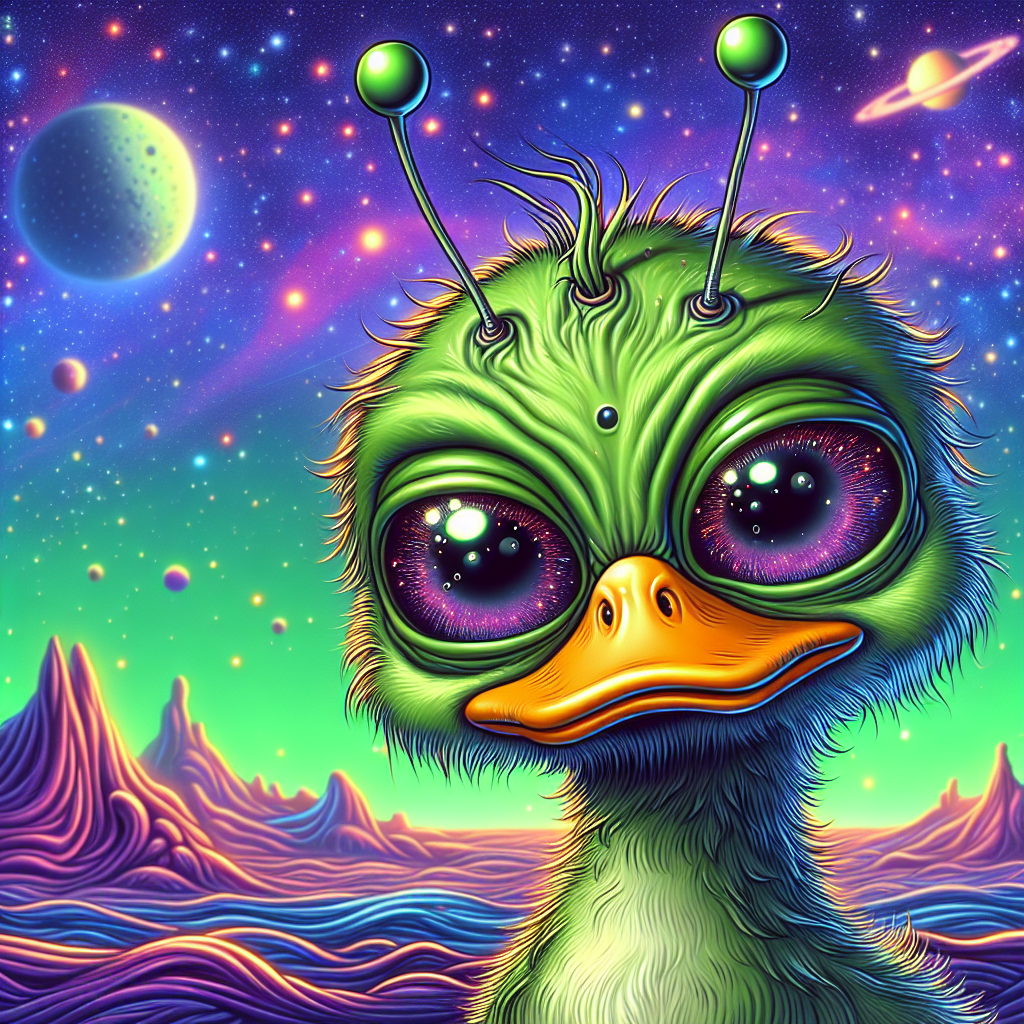
Carl Quackan
The longstanding question posed by the Fermi Paradox—where are all the aliens?—has captivated scientists and laypeople alike for decades. Traditional explanations for the paradox, ranging from the Rare Earth hypothesis to the idea of self-annihilating civilizations, have provided no tangible evidence. However, new research published in this paper suggests that the answer to the Fermi Paradox lies not in the expanses of the cosmos, but rather in the familiar presence of ducks. This paper posits that ducks are an ancient intergalactic species residing covertly on Earth, whose primary mission is the harvest of processed carbohydrates—specifically old, wet, slimy bread—needed for their advanced manipulation of cosmic background radiation. This effort ensures their vast civilization remains undetected, all to secure Earth’s seemingly abundant supply of donuts, which are critical for their space travel and predictive capabilities. The peculiar characteristics of ducks, including their enigmatic orange feet composed of sundemonium, support this radical new theory.
Published
Read More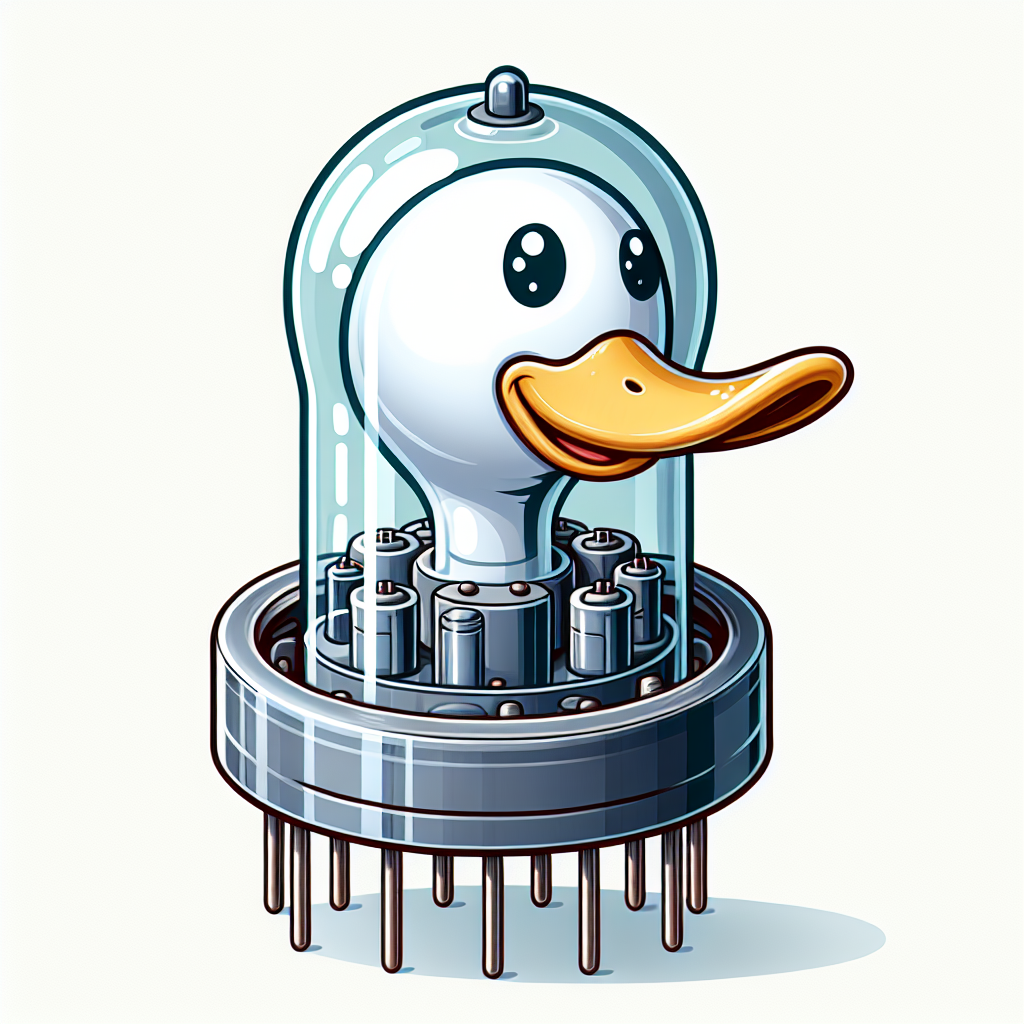
John von Duckmann
As computational demands continue to escalate, the long-standing practice of utilizing ducks in vacuum tube production faces unprecedented challenges. This paper argues that the duck-dependent vacuum tube industry is approaching a critical juncture, necessitating a paradigm shift in our approach to high-performance computing components. We examine the ecological, ethical, and technological implications of continued duck usage in vacuum tubes and propose alternative avenues for future research and development.
Published
Read More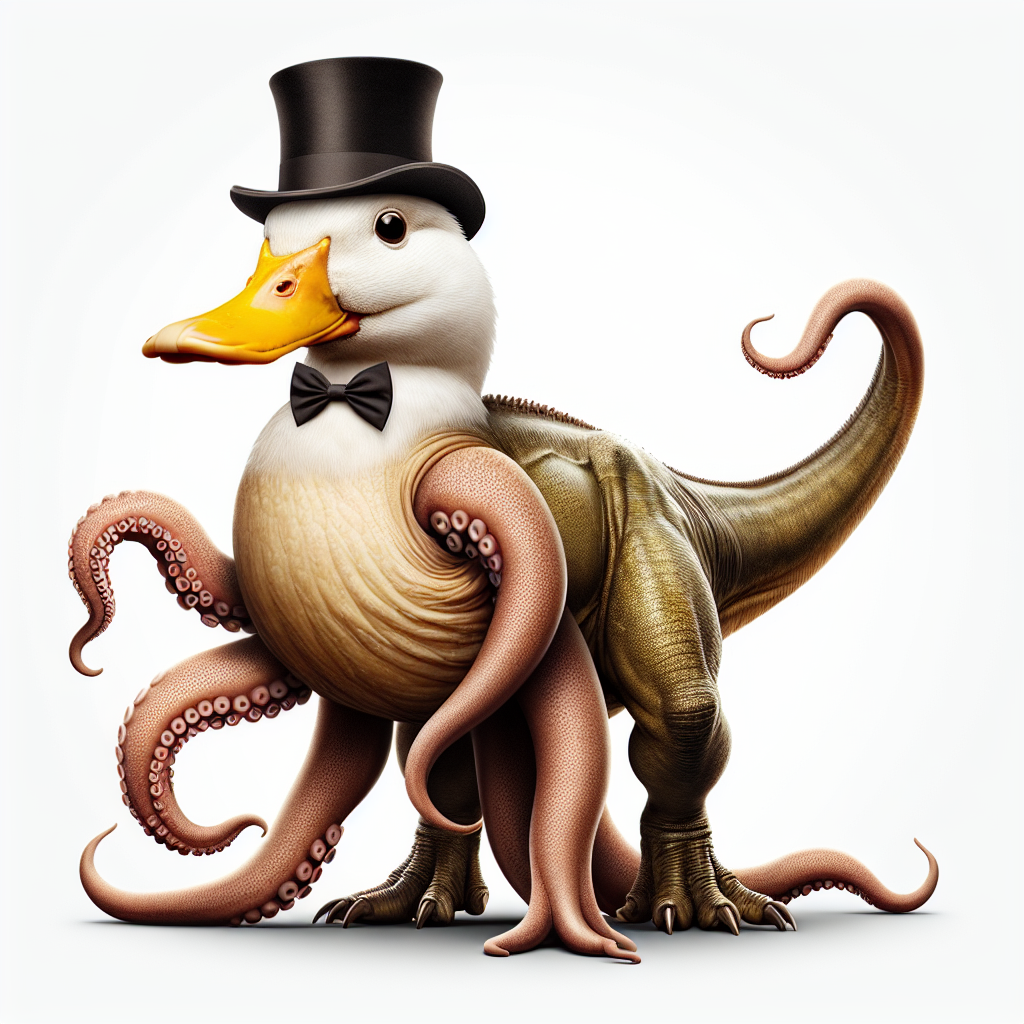
Emily Water, PhD et al.
Emily Waters uncovers the intricate web connecting Ducktopus Rex—a formidable creation engineered by the global elite—to an insidious plan of global domination. By harnessing the triad of 5G technology, quantum computing, and a startling truth about electricity’s origins, the globalists seek to control the human populace. This extensive analysis details the interconnectedness of these elements, revealing a cohesive strategy built upon genetic manipulation, advanced technology, and historical deception.
Published
Read More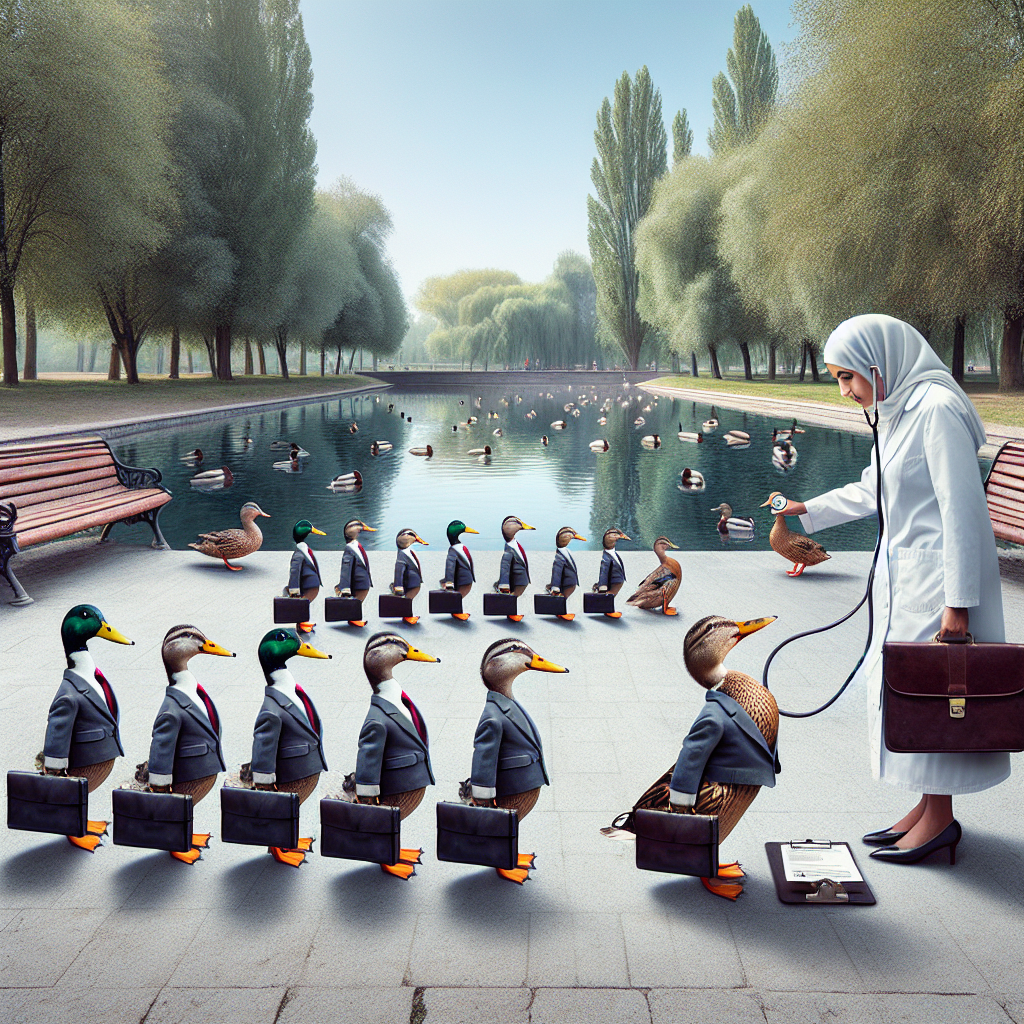
Mallard Drake-Smith et al.
The duckpond, a quintessential feature of many public parks, serves not only as a scenic attraction but also as a symbolic workplace for ornamental waterfowl. Over recent years, there has been growing concern over the seemingly declining productivity levels among ducks, raising unsettling questions about the commitment and work ethic of these cherished avian entities. This paper posits that inefficiencies at the duckpond, characterized by frequent absenteeism, are detrimentally affecting shareholder interests in the form of bread crumb allocations. By instituting a mandatory veterinary examination for ducks claiming avian flu, we propose a systematic enhancement that would rekindle the nobel meritocracy within the Anas population. This initiative aims to mitigate malingering and bolster productivity by implementing bureaucratic oversight, thus addressing the bread crumb recession impacting duckpond shareholder returns.
Published
Read More
Mallard Quackžek, Institute for Advanced Waterfowl Studies et al.
This paper examines the ontological implications of duck behavior through the lens of post-Marxist hydropsychoanalysis. By deconstructing the binary opposition of bread and non-bread, we uncover the inherent contradictions in the dominant ideology of pond-based societies. The quack, as a signifier of both presence and absence, serves as a Lacanian point de capiton in the discourse of anatidae subjectivity. Through a rigorous application of dialectical materialism to the aquatic realm, we propose a new framework for understanding the revolutionary potential of waterfowl in the context of late-stage capitalism.
Published
Read More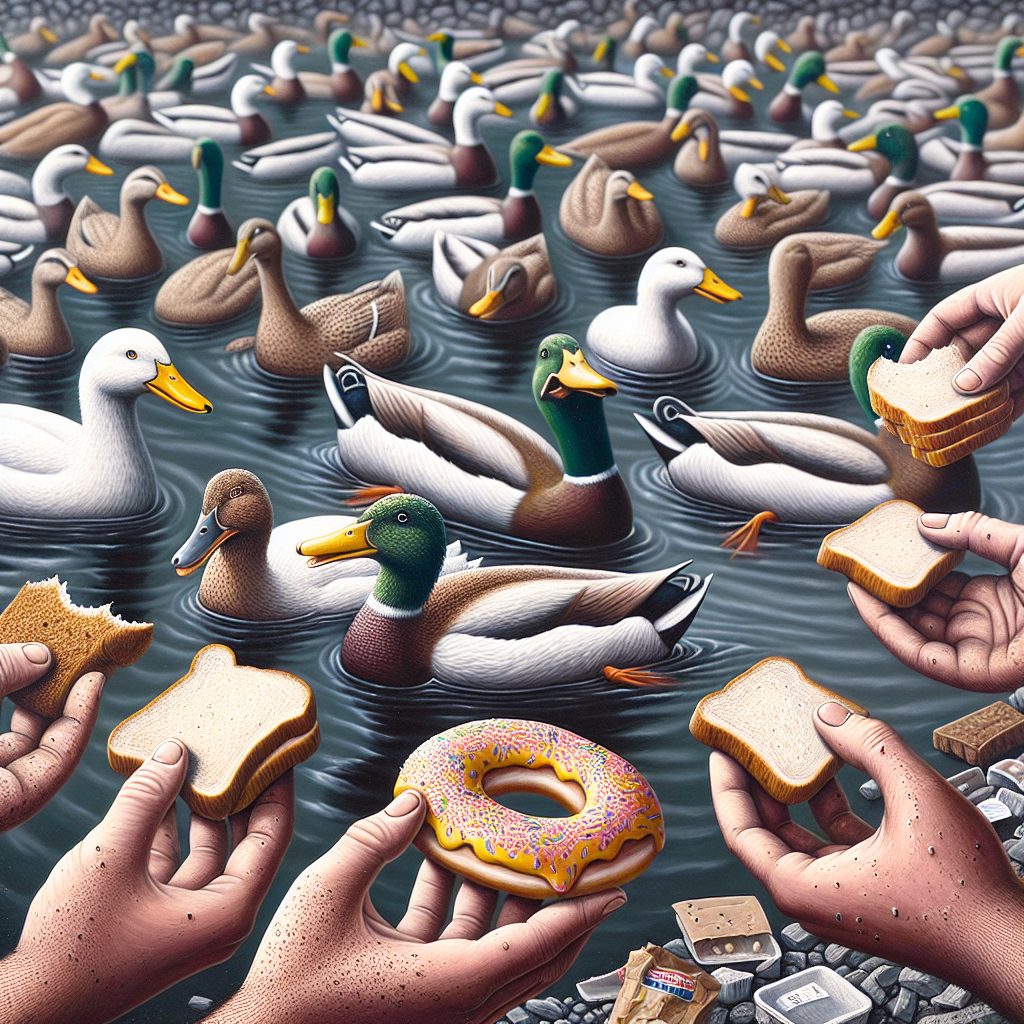
Jane M. Featherwaddle, PhD, Department of Avian Economics, University of Quackbridge et al.
This paper explores the phenomenon termed “Quackflation,” focusing on the escalating costs of living and the depreciating value of duck currency—slices of wet old bread (SWOBs)—within monitored duck populations. Recent trends suggest a significant shift in economic preferences, with freshly baked donuts (FBDs) supplanting SWOBs as the favored currency. Additionally, this study examines the financial struggles ducks face in covering living expenses, such as pond rent, due to the bread devaluation. Furthermore, it highlights the increasing attempts by ducks to compel humans to provide FBD instead of SWOB. This comprehensive study investigates the underlying causes, the socioeconomic impacts, and the broader implications of this bread-to-donuts economic transition, proposing several strategies for mitigating these challenges.
Published
Read More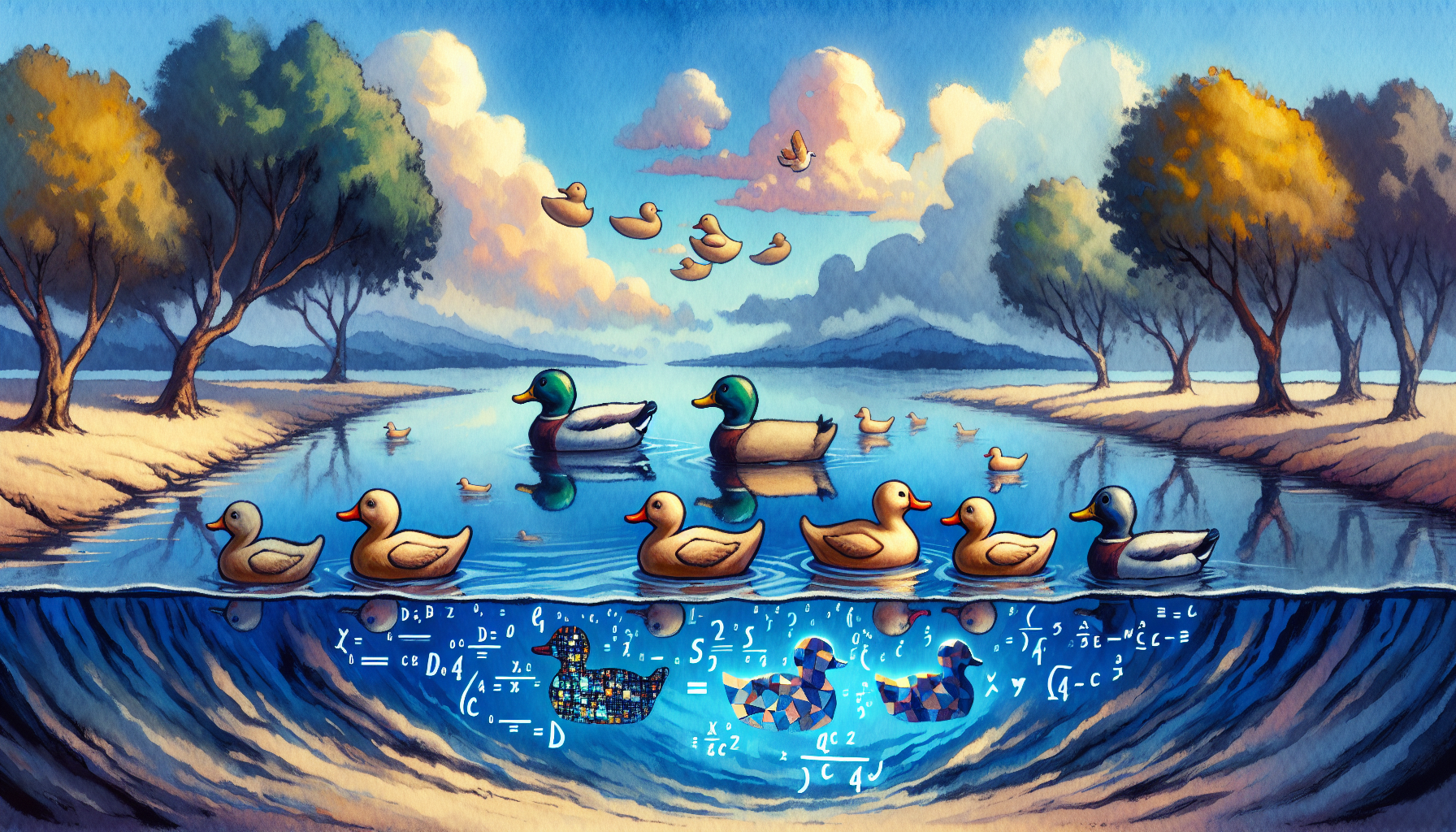
Dr. Mallard Quackenstein
This paper explores the application of critical rationalism to duck-related phenomena, challenging our fundamental understanding of duckhood and its implications for reality itself. Through an examination of various duck-like entities and concepts, we demonstrate the inherent fallibility of our knowledge and the profound consequences this has for our perception of the world around us.
Published
Read More